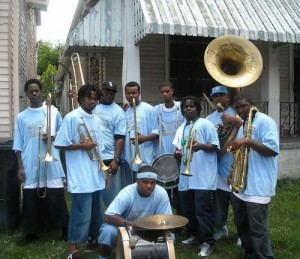In the wake of the bust of Bacchanal, supporters of live music in the city have portrayed government as being anti-live music. I don’t think that’s true in the sense that I don’t believe anyone on City Council or in government is actively hostile to live music. But it is passively hostile; government tends to look out for business interests and property values—both perfectly reasonable things to do, but protecting those interests will almost always lead to decisions that limit live music.
The message sent by zoning regulations is that live music is a nuisance. In the noise ordinance that is being drafted by City Council, that language is actually included:
Sec. 66-201. Maximum permissible sound levels.
(a) No person shall operate or cause to be operated any source of sound in such a manner as to create a sound level which exceeds the limits set forth in Table 1 or which is unreasonably excessive. Where not specified otherwise, violations of this article shall constitute a civil offense, with penalties prescribed by section 66-210, 66-211 and 66-213. Any violation of any provision of this article, whether ultimately deemed civil or criminal, shall constitute a “nuisance” per-se.
In the draft, no distinction is made between a Bourbon Street bar playing recorded music, a street preacher with a bullhorn, a barking dog, and the TBC Brass Band playing on the sidewalk. It’s all about the dBs, and from the home owner and business operator’s perspective, it is. In this respect, City Council’s being perfectly consistent with what city councils do, but the sources aren’t equal. Live music is an essential part of the appeal of New Orleans. It’s an integral part of the city’s culture from the start, and to treat it as just another value-neutral noise source is to willfully overlook what it has meant to New Orleans in the past, and what it means to it now.
If city government continues to treat live music as one more potential assault on property values, it will protect a small percentage of the city’s homeowners and businesses at the expense of the city as a whole. Bands shouldn’t get a free pass—asking a band to get off the streets at 10 p.m., regardless of how loud or quiet it is, seems perfectly reasonable—but if the city doesn’t make the active choice to recognize the significance of live music and find ways to accommodate it, it will be restricted, minimized and domesticated, which is a shameful way to treat one of New Orleans’ hallmarks.





